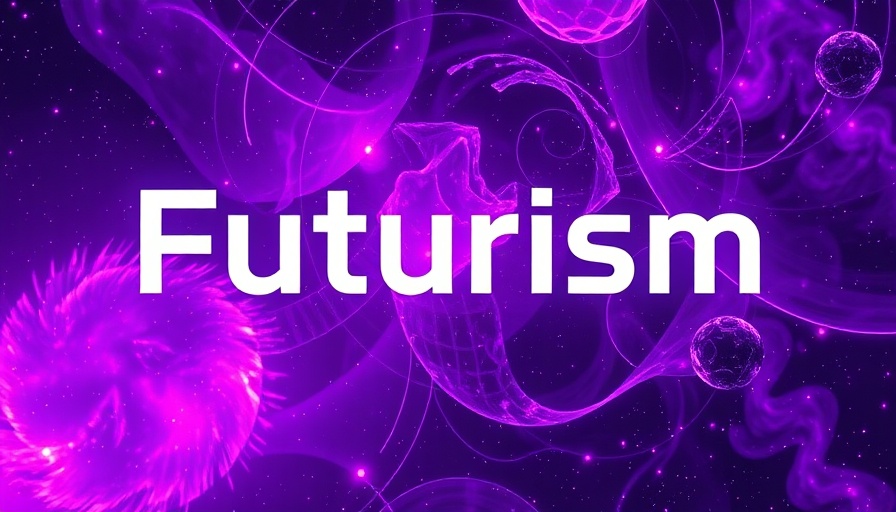
The Rise of AI Chatbots and Their Impact on Publishers
The digital landscape is evolving rapidly, particularly with the rise of AI chatbots like ChatGPT and tools from tech giants such as Google and Microsoft. These innovations, while revolutionary, are occurring at a substantial cost to traditional publishers. According to recent studies, including one by content licensing platform TollBit, AI chatbots are generating an alarming 96% drop in traffic to publishers' websites when compared to traditional search engines.
More than ever, publishers must navigate the precarious waters of AI technology. With bots scraping content massively—averaging around two million instances per publisher site—income from ad revenue is plummeting as traffic shifts away from independent sites to AI-generated summaries. This situation, described by TollBit CEO Toshit Panigrahi as a "click-stealing scheme," compels many in the industry to reassess their strategies and determine how best to survive in this new reality.
Understanding Publishers' Concerns
The concerns surrounding AI chatbots aren't isolated to small publishers. Well-established entities like Chegg have found themselves embroiled in lawsuits, claiming that Google’s AI Overview feature significantly undermines their ad revenue. The core of their argument is that when AI provides information directly, users have little reason to visit the original content sources. Chegg CEO Nathan Schulz recently expressed that the effects are so detrimental the company is even contemplating going private or selling.
This sentiment echoes a broader industry trend, where media houses are gathering to forge a united stance against these challenges. Many are advocating for AI companies to compensate content creators for the information they use, a movement reminiscent of the ongoing dialogues about copyright and intellectual property in the digital age.
Impact of Generative AI Searching
As AI continues to make headway, latest updates enable ChatGPT to access real-time internet information—a game changer that has prompted publishers to take the potential repercussions more seriously. Even the momentary limitation on data access provided a temporary buffer, yet the recent capability to pull the latest content raises eyebrows.
Industry executives have voiced their apprehension. They argue that this shift from simply responding to queries with links to delivering full answers may further inhibit the click-through rates essential for sustaining revenues. This transformation seems benign at first glance but could lead to substantial financial ramifications for publishers who rely heavily on site visits.
The Publisher's Path Forward
As the challenges intensify, the pressing question looms: what are the next steps for publishers? Many are actively strategizing, leveraging their real-time content creation capabilities and building partnerships with AI firms. Initiatives to ensure fair use of their content are top priority, highlighting an industry-wide cooperation to resist being trampled by technological advances.
Publishing giants are also squarely faced with the task of not only repackaging their offerings but also emphasizing the value of nuanced journalism and quality writing—elements that an AI can't replicate. In this way, publishers might not just survive but thrive, capitalizing on their unique strengths.
Engagement with AI: A Double-Edged Sword
Interestingly, while many are focused on the issues that AI presents, there's an opportunity for collaboration that could benefit both parties. As companies like OpenAI beget technology that depends heavily on informational resources, building partnerships with publishers could yield benefits. This dialogue could allow publishers to not only safeguard their content but also reshape their engagement with the AI landscape.
Looking to the Future
As the conversation pivots towards these technological transitions, we can make educated predictions about the future of journalism. Will AI ultimately erode the foundations of traditional media, or will it serve as a catalyst for innovation? As media professionals and AI developers engage in critical discussions, the need for regulations that protect content creators grows increasingly urgent.
Conclusion: The Next Steps for Publishers
Ultimately, the rise of AI chatbots represents an existential threat to publishers, but it can also serve as a call to arms for the industry. By acknowledging and adapting to this paradigm shift, they can find innovative solutions that foster resilience in the face of adversity. How do you think publishers will navigate this new terrain? Feel free to share your thoughts in the comments—your perspective matters!
 Add Row
Add Row  Add
Add 




 Add Row
Add Row  Add
Add 

Write A Comment